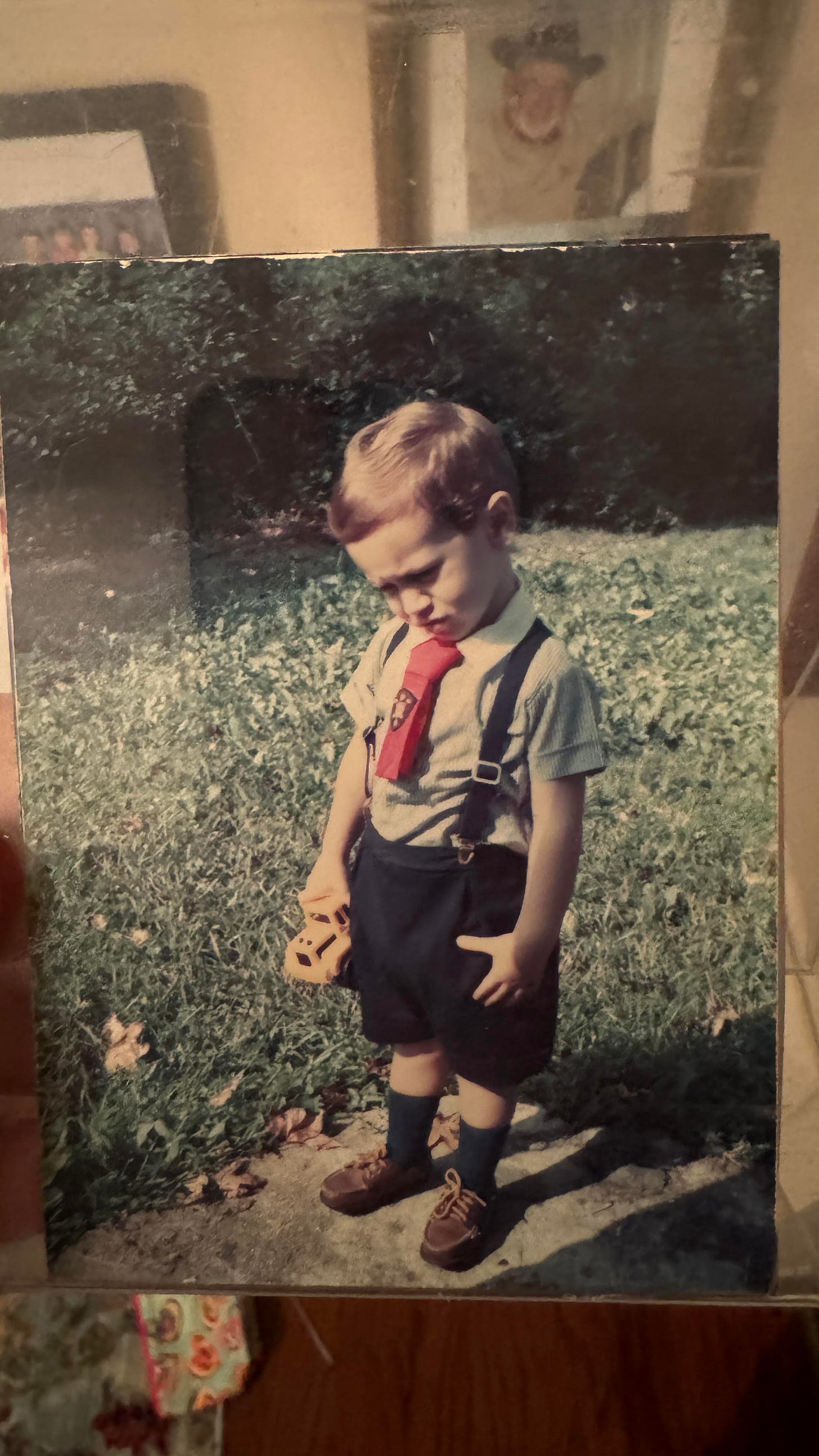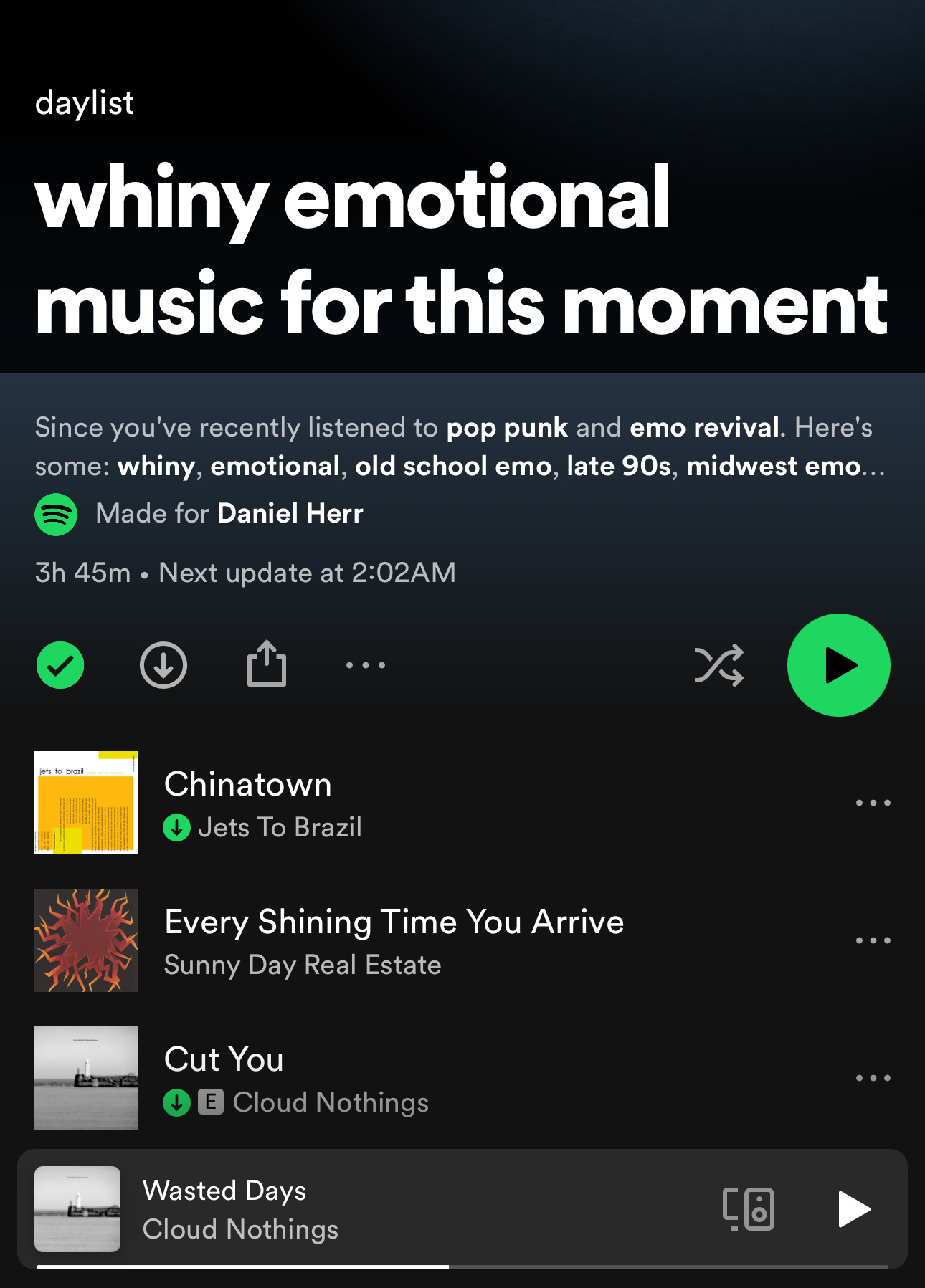Sorry this is coming a bit late this week! Life is life-ing in big ways and I’ve had some thinking problems around this week’s topic. Grief is a massive topic and not easy to boil down to a newsletter, so here are my current thoughts. More on this at a later date.
If you’ve been reading this newsletter or know me in person, you know that I have to move and I’m not happy about it. My emotions have been running rampant.
As expected, I’ve felt angry, annoyed, frustrated. Too, I’ve had moments of joy, fun, hope. But there’s been an emotion bubbling up that I was almost surprised to feel: grief.
The surprise didn’t last because I know that it’s normal to grieve over losses, big and small. This move falls somewhere in the middle for the size of loss, as I have to completely rearrange the physical parts of my life.
This got me thinking about how taboo expressions of grief are in our society, at least for the things that aren't deemed large enough. The only agreed upon large loss to grieve is death. Some death is bigger than other deaths. Human death, for example, is larger than the death of a pet. These unspoken classifications are largely based around the value systems we’ve all been buying into (or being sold on) since childhood.
But this isn’t a breakdown of our societal value system.
Today we’re looking at small things, or things deemed not worthy of grief. Think of a beloved coworker leaving for another job or a break up with someone you only were seeing for a couple weeks or breaking a favorite mug or all of a sudden needing glasses after a lifetime of perfect vision. Fill in with whatever small losses you’ve experienced.
Why have we bought into the idea that these types of losses aren’t worth grieving?
The answer is two-fold. First, the ways in which we’ve been taught to understand and interact with emotions — our own or other’s — are mostly avoidant. Our socializing is decidedly shallow. Second, grief is a particularly strong and reactive emotion that is distressing in ways that feel existential. Let’s see how these play into the taboo of grieving for small things.
American society has long espoused that men should be stoic and women are outwardly emotional. But even women are taught that there are appropriate times and places for their emotions. Sure, at this point, kids are being taught more and more to embrace their emotions and understand them. But unless you’re 10 years old, you were taught and have certainly experienced these societal norms. If you’re like me at all, you’ve embraced the recent pushback against those norms and do your best to be vulnerable and open with your feelings with those you love, which years of therapy have helped me do that with some regularity.
But the conditioning of youth sticks with us. It’s much easier to fall back into our old habits and avoid talking about a difficult situation or push away any uncomfortable emotion we’re feeling. It’s even easier to avoid a friend or family member having a rough time or grieving a loss because other people’s emotions are even more uncomfortable to hold than our own.
Admittedly, there have been many times I’ve avoided seeing or reaching out to friends because they experienced loss —or another difficult situation — and I wasn’t sure how to hold space for them and their emotions. There have been just as many times I’ve done everything I could (stay frantically busy, get high, play video games, be more social than I generally like) to avoid my own difficult emotions.
There are plentiful ways to avoid holding emotions, our own or others’. We all know folks who are willing to ‘support’ others through hard times but instead of holding space for them, they make the entire thing about themselves by dominating conversation, but avoid the hard thing. Or the person who makes it about themselves by making the grief a competition that they always win. Or the kind of people who throw themselves completely into a new project to retreat from themselves. All of these things are just ways to avoid hard emotions.
Grief is an emotion that often feels best to avoid. In part, this is because grief is specific to loss. By avoiding grief, we think we can avoid the reality that any loss has occurred. Directly confronting losses reminds us of the impermanence of all things. We can and will lose everything one day. Grief reminds us of this, no matter how expansive our grief is.
But we can pretend — however briefly — to think a loss never occurred. How comforting! The unconscious knows it will need to deal with the grief eventually, but later, when it’s more prepared.
Obviously, this is false. Avoidance is still dealing with it, just in a less-than-healthy way. The grief eats away at us until it’s eaten enough that we notice what’s gone. Once that’s happened, we have much more work to do to process and understand and embrace our grief. Even in our avoidance we are feeling our grief, just in a way that feels manageable.
But grief is also the emotion that can help us feel more whole after a loss. Because what is grief if not love? And what could possibly help with a loss more than love? Grief is a visceral act of love.
To grieve the small things brings these pieces together. Of course we want to avoid this intense feeling that reminds us of our mortality. Especially when we think the loss we’re grieving feels silly and small. Dropping and shattering my favorite mug feels like a wild catalyst to remind me I will die. This reminder isn’t always conscious, and it’s one we easily push down once we recognize it.
This creates a terrible cycle of avoidance for our emotions. But, if we were to face our grief head on and reckon with the truth of the impermanence of all things, we begin to accept this basic truth. (The path to being able to truly accept this is difficult and not a topic for today.) As we accept this, it changes our mindset around what grief is and what it can do for us.
It’d be easy to think that confronting grief head on and with regularity would lessen its impact, but that’s not quite right. Grief is still intense and tough to handle. For me, confronting and accepting my grief has brightened my world.
Because I know that everything is temporary and everyone will die, I’m seeing the beauty in everything around me. What a miracle that any of this exists at all! And when I experience loss, I allow myself to feel my grief deeply, as I know this is my love, manifest.
For leaving my current living situation, I still feel myriad emotions. But in my grief, I look back with gratitude at all the wonderful things it provided me. I see how lucky I was to have found such a great roommate with an awesome house in a great location at a rate that was affordable. It was exactly what I needed when I needed it. While I’ve known how good I’ve had it, grieving over losing this space has highlighted and brought to forefront all the wonderful and beautiful parts of living here.
As I keep looking for a new place to live, I’m trying to keep this in mind. Because the next place I live will serve its purpose, in ways I like or not. Believing that the next place will be exactly what I need is all I can do while I look, which — as I’ve written about before — is no easy task. ‡
No recommendations this week, y’all. Let me know what you’ve been reading, listening to, and thinking about!




